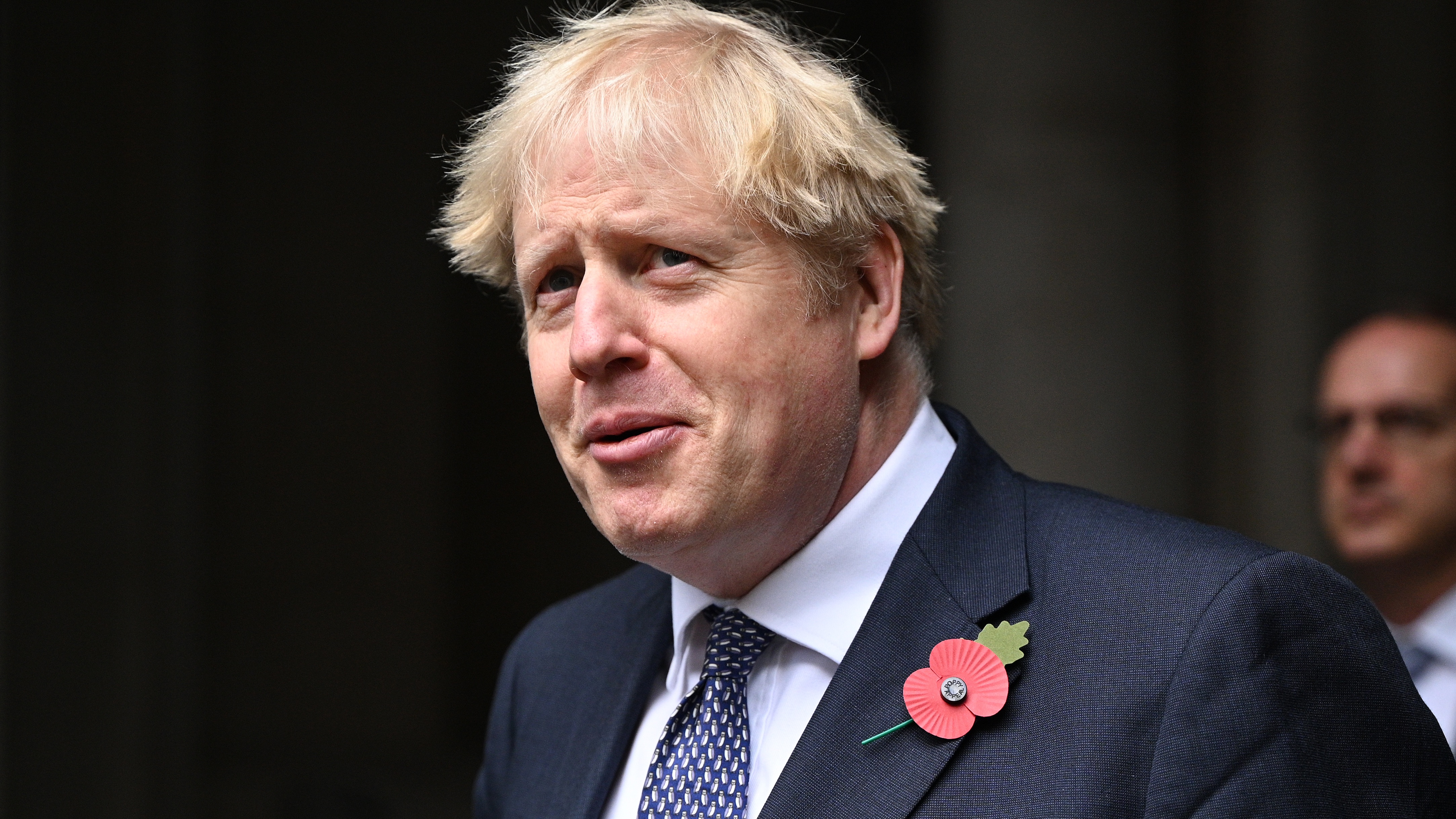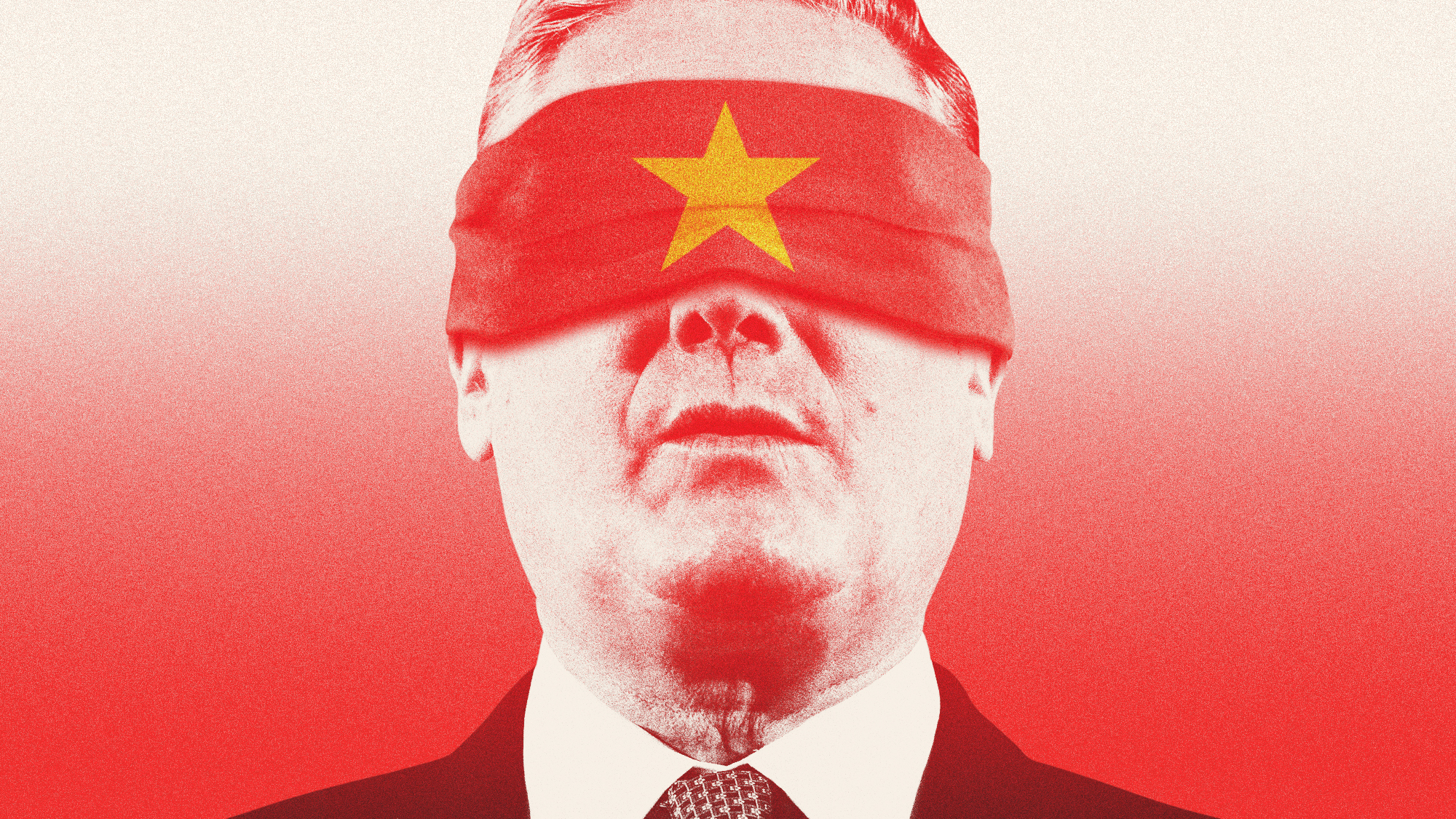No-deal Brexit would hit economy harder than Covid, OBR warns
Watchdog predicts that failure to reach trade agreement will damage sectors which are surviving pandemic

A free daily email with the biggest news stories of the day – and the best features from TheWeek.com
You are now subscribed
Your newsletter sign-up was successful
A no-deal Brexit would strike a devastating blow to parts of the UK economy spared the worst of the coronavirus crisis and result in hundreds of thousands of job losses, the Office for Budget Responsibility (OBR) has predicted.
The economy is already expected to contract by a total of 11.3% this year - the “largest fall in 300 years”, says Politico’s Ian Dunt. But a failure to reach a post-Brexit trade agreement with the EU could reduce GDP by a further 2% next year on top of the financial damage wrought by the pandemic, according to a newly published OBR report.
And that drop comes in addition to a 4% fall in GDP that the spending watchdog predicts will result from Britain quitting the EU even if a deal is secured.
The Week
Escape your echo chamber. Get the facts behind the news, plus analysis from multiple perspectives.

Sign up for The Week's Free Newsletters
From our morning news briefing to a weekly Good News Newsletter, get the best of The Week delivered directly to your inbox.
From our morning news briefing to a weekly Good News Newsletter, get the best of The Week delivered directly to your inbox.
If last-ditch Brexit negotiations fail to bear fruit, the tariffs and barriers that will follow are expected to “disproportionately affect sectors that otherwise would have come through the pandemic reasonably unscathed”, says The Times.
Four sectors that were “spared a big Covid-19 hit” - agriculture, finance, real estate and mining - are expected to be “hurt most”, adds the Financial Times.
The OBR forecasts that the combined effects of no-deal will result in more than 300,000 job losses by November next year, in addition to the nearly million more people who are expected to be made unemployed as a result of the Covid crisis.
The watchdog says that would take unemployment levels to 8%, “rather than the 7.5% it currently predict”, reports The Independent.
A free daily email with the biggest news stories of the day – and the best features from TheWeek.com
Hopes of boosting the UK economy by securing free trade deals with non-EU countries appear to be ill-founded too.
The OBR predicts that such agreements would provide only “modest” growth, with a trade deal with the US forecast to add only 0.02% to 0.15% to GDP.
The publication of the OBR report comes as Brexit talks remain deadlocked. EU Commission President Ursula von der Leyen warned yesterday that issues “that can make the difference between deal or no deal” had yet to be resolved as the clock ticks down until the end of the transition period.
-
 Labor secretary’s husband barred amid assault probe
Labor secretary’s husband barred amid assault probeSpeed Read Shawn DeRemer, the husband of Labor Secretary Lori Chavez-DeRemer, has been accused of sexual assault
-
 Trump touts pledges at 1st Board of Peace meeting
Trump touts pledges at 1st Board of Peace meetingSpeed Read At the inaugural meeting, the president announced nine countries have agreed to pledge a combined $7 billion for a Gaza relief package
-
 Britain’s ex-Prince Andrew arrested over Epstein ties
Britain’s ex-Prince Andrew arrested over Epstein tiesSpeed Read The younger brother of King Charles III has not yet been charged
-
 Trump touts pledges at 1st Board of Peace meeting
Trump touts pledges at 1st Board of Peace meetingSpeed Read At the inaugural meeting, the president announced nine countries have agreed to pledge a combined $7 billion for a Gaza relief package
-
 Should the EU and UK join Trump’s board of peace?
Should the EU and UK join Trump’s board of peace?Today's Big Question After rushing to praise the initiative European leaders are now alarmed
-
 How corrupt is the UK?
How corrupt is the UK?The Explainer Decline in standards ‘risks becoming a defining feature of our political culture’ as Britain falls to lowest ever score on global index
-
 Can Starmer continue to walk the Trump tightrope?
Can Starmer continue to walk the Trump tightrope?Today's Big Question PM condemns US tariff threat but is less confrontational than some European allies
-
 The high street: Britain’s next political battleground?
The high street: Britain’s next political battleground?In the Spotlight Mass closure of shops and influx of organised crime are fuelling voter anger, and offer an opening for Reform UK
-
 EU-Mercosur mega trade deal: 25 years in the making
EU-Mercosur mega trade deal: 25 years in the makingThe Explainer Despite opposition from France and Ireland among others, the ‘significant’ agreement with the South American bloc is set to finally go ahead
-
 Biggest political break-ups and make-ups of 2025
Biggest political break-ups and make-ups of 2025The Explainer From Trump and Musk to the UK and the EU, Christmas wouldn’t be Christmas without a round-up of the year’s relationship drama
-
 Is Keir Starmer being hoodwinked by China?
Is Keir Starmer being hoodwinked by China?Today's Big Question PM’s attempt to separate politics and security from trade and business is ‘naïve’